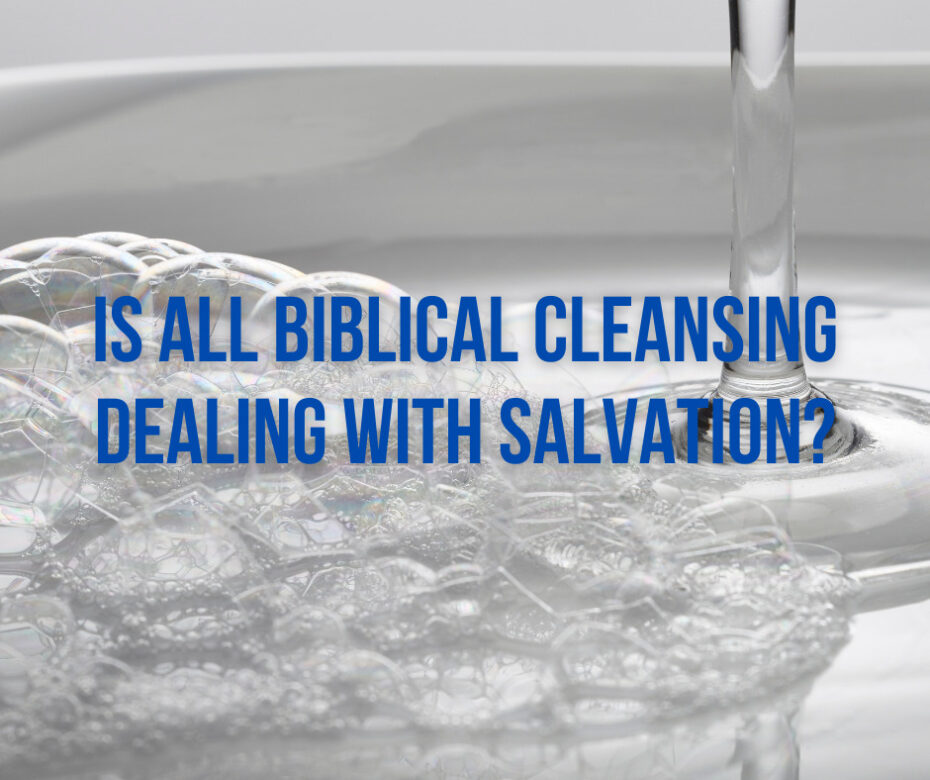In Isa 1:18, the prophet records these familiar words:
18 “Come now, and let us reason together,” says the Lord
“Though your sins are like scarlet,
They shall be as white as snow;
Though they are red like crimson,
They shall be as wool.”
The words of the prophet are reflected in the lyrics of several popular hymns and contemporary Christian songs. Many within Christendom view this verse as a depiction of eternal salvation. However, the verses before and after these famous words speak of a different purpose.
First, in the previous verses, the Lord explains exactly how this cleansing can take place. Speaking to the nation of Israel, He says the people need to wash themselves, and make themselves clean. This alone is an odd statement, if it’s meant to be viewed as a salvific cleansing. The coming Messiah is not mentioned, and the washing is done by the people. In addition, He goes on to say that they need to put away their evil deeds (v 16), and they also need to learn to do good (v 17). In other words, they needed to repent from their sins, and walk in obedience. He goes on to explain what those good things are in verse 17. They include seeking justice, rebuking oppressors, defending orphans, and pleading for the widows. All of these deal with works and righteous living.
Second, after the description of this cleansing in verse 18, He reiterates how this washing can take place:
If you are willing and obedient (Isaiah 1:19a).
This statement shows that the washing is conditioned upon obedience, not faith in the Messiah. In other words, this is not a washing by grace through faith (Titus 3:5). They must be willing, and obedient. Unbelievers are not saved because they repent, or are obedient, or because they take care of widows. Salvation is by faith alone in Christ for the free gift of eternal life (John 3:16; 4:10, 14; 5:24; 6:40, 47; Eph 2:8-9). Therefore, the cleansing that is being offered here is not dealing with eternal salvation.
As the passage continues, two options are brought forth. If the nation obeys, it will be blessed. The Lord will take care of the people, and they will eat of the good of the land (v 19b). However, if they are not willing, and disobedient, the Lord will allow Gentile nations to destroy Israel, and they will be devoured by pagan swords (v 20). Sadly, this is what will end up happening to the nation through the Assyrians, and later the Babylonians.
On his discussion of this passage, Constable writes:
The Israelites could continue as they were and be destroyed or submit to God’s will and be blessed. If they were disposed to consent and obey, God would again bless them with fertility (cf. v. 3). If they decided to refuse and rebel, He would allow their enemies to defeat and destroy them. (Tom Constable, www.Bible.org).
Neither of these options deal with the eternal destiny of the individual people within Israel. Rather, this was a national issue, which would result in physical benefits, or physical discipline of both the people and the land. It should be noted that even believing Jews experienced the discipline of God during the Gentile invasions that followed.
How can we apply this to believers today? While we are not the nation of Israel, and many of the specifics are different for us today, there is an application for us (2 Tim 3:16). There is also a cleansing that is being offered to church-age saints. In 1 John 1:9, the apostle John tells us that when we confess our sins, we can experience a cleansing as well. When we become aware of sin, we are given the opportunity to confess it, and to continue to walk in the light of the Lord. If we do, we can experience the spiritual blessings that come from obeying the Lord. If we don’t, like the nation of Israel, we can expect the disciplinary work of the Lord in our lives. None of this however, is dealing with eternal salvation.
The words of Isaiah are beautiful. They are a stunning example of the Lord’s graciousness towards Israel, even when it had fallen into rebellion. There can be no doubt that the imagery of this passage sparked the imagination of many song writers today. However, the danger of misapplication is significant. If an unbeliever reads this passage thinking it’s referring to eternal salvation, he could walk away thinking he has to take care of orphans and fight injustice in order to receive eternal life. This would be a tragic misapplication.

